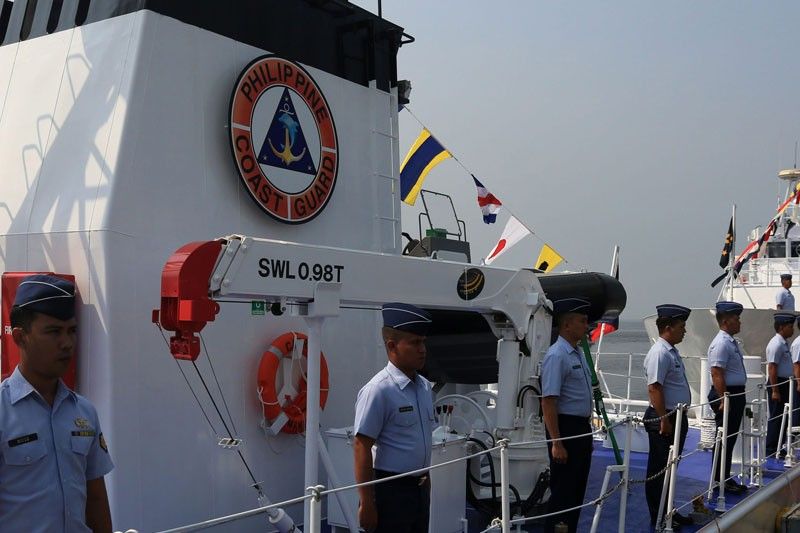PCG sets up Catanduanes base to patrol Philippine Rise

LEGAZPI CITY , Philippines — The Philippine Coast Guard (PCG) is setting up a base in Catanduanes where it plans to station vessels for patrol duties in the Philippine Rise.
The base will be established in the town of Bagamanoc, the nearest coast to the marine resources-rich territory formerly called Benham Rise.
Catanduanes Gov. Joseph Cua welcomed PCG’s announcement of its plan to build a base in the town and promised to assist in the undertaking.
He said it is high time the government expand its patrol in the country’s territorial waters, especially in the light of China’s provocative activities in the West Philippine Sea, especially its building of fortifications within the country’s exclusive economic zones.
“Our government must be serious in protecting its rich water or land territories to avoid a repeat of what happened to the Scarborough Shoal and the West Philippine Sea,” Cua said. Scarborough Shoal, locally known as Panatag Shoal or Bajo de Masinloc, has been under Chinese control since 2012.
Local fishermen call Catanduanes “Kalipung-Awan,” which literally means “loneliness from an isolated place.”
Cua said Catanduanes fishermen travel for 12 hours to Philippine Rise to catch fish.
He said the US Coast Guard used to operate a base – equipped with long-range radar – on an islet off Bagamanoc in the 1950s.
Cua said he was informed that Transportation Secretary Arthur Tugade, Civil Aviation Authority of the Philippines (CAAP) director general Jim Sydiongco and high ranking officials of PCG and Philippine Navy earlier conducted an aerial survey of the islet.
The government designated Philippine Rise a “protected food supply exclusive zone” in May 2017.
As protected area, Philippine Rise bans all mining and oil exploration activities.
President Duterte signed Executive Order No. 25 in May 2017 renaming the feature Philippine Rise.
‘Debt trap’
Meanwhile, a study on China’s Belt Road Initiative has cited risk of nations getting misled by hyped opportunities promised by the program.
The study, titled “The 21st Century Silk Road: Perils and Opportunities of China’s Belt and Road Initiative,” was presented at a recent forum in Makati City organized by the Stratbase ADR Institute (ADRi).
“Although some analysts say that BRI is a promising initiative for infrastructure global development, it has also been criticized for being too ambiguous and murky, prompting states to exercise more caution in screening Chinese contractors and applying strong safeguards to prevent being trapped into ‘debt diplomacy,’” said Stratbase ADRi president, Dindo Manhit.
In the study, author Richard Heydarian said the BRI should be able to promote inclusive growth and provide jobs for the locals, rather than keep them reliant on fully integrated Chinese supply of capital, technology and labor.
“If this will not be guaranteed, the Philippines’ engagement with China will be meaningless and unsustainable,” he said.
The study states that BRI’s objectives are aligned with China’s geopolitical goals, including facilitating its long-term plans of developing landlocked hinterlands and underdeveloped regions, assisting and promoting troubled state-owned enterprises, developing trading partners’ basic infrastructure to reverse anemic growth in global trade, gaining foothold across strategically located nations and globalizing Chinese technological and industrial standards across emerging markets.
Corruption, lack of transparency and problems in accountability plagued Chinese projects in past administrations, the study said. It also noted the World Bank’s blacklisting several Chinese contractors and stressed the need for the Philippine government to ensure that competitive bidding process is observed, and strict standards in good governance and environmental sustainability are enforced.
Related video:
- Latest
- Trending































